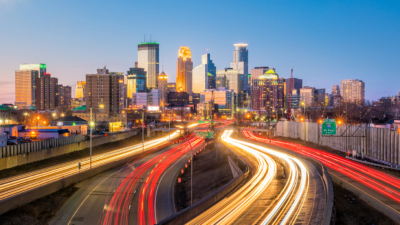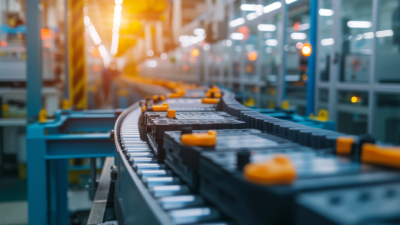As populations continue to grow and shift more to urban areas, the demand for locally grown, organic food and produce has increased in those areas. This has led to an increased interest in urban agriculture. Community gardens and farmers’ markets have sprung up in almost every neighborhood over the last five years, but they provide a limited supply and are seasonally restricted. Indoor farming facilities, on the other hand, can bring fresh, local produce to urban food deserts year-round.
Indoor, controlled-environment, sustainable agriculture is not a new idea. Mushrooms have been cultivated indoors in Chester County for over 120 years. Cannabis is also grown more successfully indoors (illegally and legally), and this industry has pioneered indoor growing techniques and technology. There are multiple types of indoor farming facilities: aeroponic greenhouses, aquaponic greenhouses, soil-based hydroponic greenhouses and vertical farms.
Until about 10 years ago, indoor farming in the United States was dominated by greenhouse crop production. Since then, advances in technology and the corresponding decrease in lighting costs have made vertical farming more viable. Indoor agriculture provides a stable, efficient environment that can produce multiple harvests per year and generally without pesticides. According to the United States Department of Agriculture, indoor horticulture is about 4,000 times more productive on a revenue basis than conventional outdoor farming.
Indoor farming requires water piping systems and strong ventilation to defray heat from the specially calibrated LED grow lights. Obtaining start-up capital for design and infrastructure, as well as establishing distribution channels, are major challenges. That said, some local companies seem to be surviving and thriving.
Metropolis Farms
On an industrial block in South Philadelphia on the second floor of a warehouse, is the four-year-old Metropolis Farms, the first indoor vertical farm in the city and the first vegan-certified farm in North America. The farm’s patented technologies enable them to use 40% less energy, grow at a higher density and produce more cash crops such as strawberries and heirloom tomatoes. This ultra-efficient, environmentally-responsible and commercially scalable indoor farm is highly-adaptive and can operate profitably for both smaller farms (flash farms) and large-scale super farms.
Co-founder Jack Griffin, a native Philadelphian and former Wall Street banker, envisions the city becoming the center of indoor agriculture: developing technology and manufacturing components and growing systems that benefit communities and create green-collar jobs for high school graduates.
They are developing modular systems for commercial and residential gardeners that can be built from easily accessible materials and can be quickly disassembled for cleaning.
“We’re getting 17 to 19 harvests per year vs. outdoors where you only get two,” he explained.
Metropolis is planning a second Philly location on the underutilized fourth floor of a warehouse near Columbus Boulevard. It will house the equivalent of 660 acres of farmland and be the first solar-powered indoor farm in the world.
Bright Farms
Compelled to develop an alternative produce supply chain to an industrialized and centralized food system, Bright Farms, which was recently ranked # 235 on the Inc. 500 list of America’s fastest growing private companies, builds state-of-the-art greenhouse facilities. They have been operating a 56,000-square-foot hydroponic greenhouse in Yardley, Bucks County since 2013, growing food in the same communities where it’s consumed and creating a revolutionary supply chain that cuts time, distance and costs over fewer miles and with fewer trucks. Produce like hydroponic greens, herbs and tomatoes, are distributed to the local Walmarts, McCaffrey’s, Acme and giant supermarkets.
Aero Farms
In Newark, New Jersey’s inner city sits the world’s largest indoor vertical farm. The site is a 69,000-square-foot converted steel warehouse and serves as Aero Farms’ global headquarters. The company plans to build their tenth facility next year, a 78,000-square-foot vertical farm in the city of Camden, thanks to tax breaks from the state of New Jersey.
Aquaculture
Aquaculture is also moving indoors. The University of Maryland is experimenting with land-based, self-contained fish farming techniques. Blue Ridge Aquaculture in Ridgeway, Virginia, currently raises four million pounds of tilapia from its 100,000-square-foot facility.
Looking Ahead
Traditional agriculture is limited to areas with sufficient land and water, and the supplies of both are diminishing. Indoor agriculture and aquaculture operations are cultivating an industry with the potential to create a wide cycle of businesses. They allow population centers to control their food supply, bring jobs and job training programs to inner cities and provide a viable alternative to restore life to vacant, underutilized commercial real estate.
As grocery delivery becomes more standard and will likely escalate with Amazon expanding its market share, supermarkets of the future will have to rethink their business models to remain competitive. With more groceries coming from warehouses, vacant inner city industrial buildings are holding new possibilities as well, transforming from decaying reminders of an industrial past to verdant farms enriching the community.
Rose serves as Market Research Director at Colliers and is a member of the Colliers International Research Council. She is responsible for the compilation, analysis and dissemination of all market data as well as detailed market studies on more than 500 million square feet of commercial real estate in Pennsylvania, New Jersey and Delaware.

 Rose Penny
Rose Penny
 Baily Datres
Baily Datres Mike Otillio
Mike Otillio
 Jesse Tollison
Jesse Tollison
 Patrich Jett
Patrich Jett